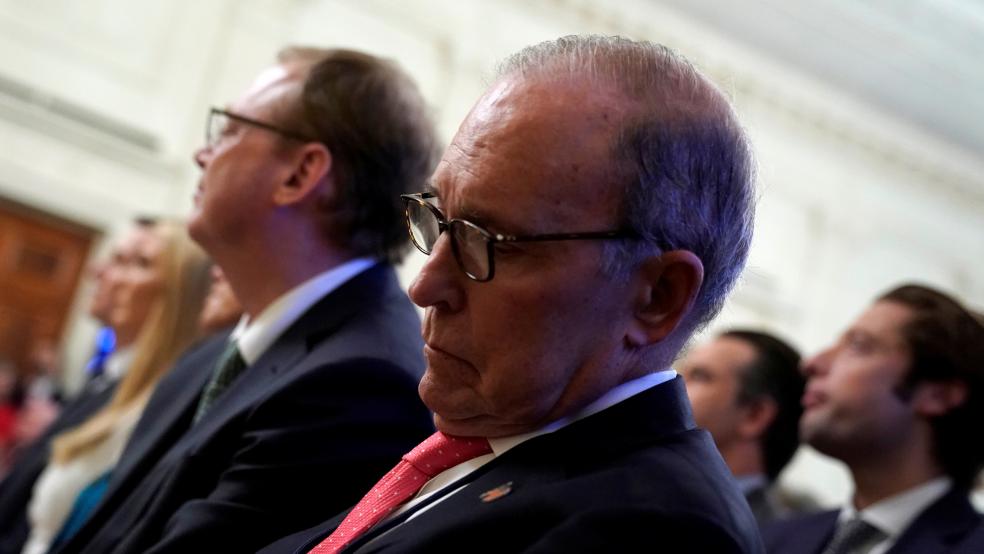Larry Kudlow, director of President Trump’s National Economic Council, set off a wave of incredulous head-scratching on Friday by claiming in an interview with Fox Business Network that the federal deficit “is coming down. And it’s coming down rapidly.”
The deficit is most certainly not coming down, let alone doing so rapidly. Kudlow clarified his statement later in the day, explaining that he meant that the deficit will come down rapidly as the GOP’s tax cuts and the White House’s economic plan boost growth far beyond what most analysts outside the Trump administration expect.
Here’s how Kudlow laid it out for Politico’s Ben White:
My case for lower deficits is that economic growth, both real and nominal, is going to be significantly faster than any of these forecasters expect, especially the CBO. And I mean significantly. I think it could run 3.5 percent in 2018 and still over 3 percent in 2019. That’s going to lift nominal growth and that’s where the revenues come from.
What I’m saying is that the deficit estimates are wrong and economic growth is going to prove it wrong. That’s my case and it’s a supply side case. We are in an investment boom. The numbers are rolling in very rapidly and I don’t think this is new news from Kudlow.
That explanation is slightly more defensible than claiming that the deficit is falling — which, again, it is not — but only slightly. The Washington Post Editorial Board explained why in a Sunday piece headlines “The White House is living in an alternate economic universe”:
We’re glad to learn that Kudlow’s claim was a fantasy too far even for the Trump White House. But his new version isn’t much of an improvement reality-wise. The fact is that the estimated $1.2 trillion reduction in federal revenues over the next 10 years that the Republican-majority Congress enacted six months ago has widened what was already a large hole in federal finances. The cash hemorrhage has already begun. As The Post’s Aaron Blake reports, for the first seven months of fiscal 2018 (October through April), the deficit stood at $385 billion, 12 percent more than for the same period last year. Even if Mr. Kudlow’s vaunted supply-side-effect produces enough revenue to make up that gap — a generous assumption — the most he could say is that the deficit remained flat, not that it came down, much less ‘rapidly.’ … If Mr. Kudlow’s comments are any indication, this White House intends not only to put off action on the nation’s fiscal predicament but to pretend it doesn’t exist.
And New York Magazine’s Jonathan Chait offered a damning defense of Kudlow’s clarification:
I do think Kudlow is being completely honest, though, in his conflation of the present and future tenses. In the mind of supply-siders, it is simply an iron law of the universe that higher taxes on the rich reduce revenues, and lower taxes on the rich raise them. The fact that the opposite has happened over and over, and is happening again right now, is completely immaterial to him. He is so certainly certain of his theory he can boast of its success as though it is happening already.





